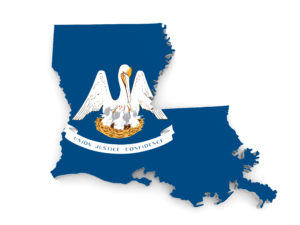What you can deduct when volunteering
Because donations to charity of cash or property generally are tax deductible (if you itemize), it only seems logical that the donation of something even more valuable to you — your time — would also be deductible. Unfortunately, that’s not the case.
Donations of time or services aren’t deductible. It doesn’t matter if it’s simple administrative work, such as checking in attendees at a fundraising event, or if it’s work requiring significant experience and expertise that would be much more costly to the charity if it had to pay for it, such as skilled carpentry or legal counsel.
However, you potentially can deduct out-of-pocket costs associated with your volunteer work.
The basic rules
As with any charitable donation, for you to be able to deduct your volunteer expenses, the first requirement is that the organization be a qualified charity. You can use the IRS’s “Tax Exempt Organization Search” tool (formerly “Select Check”) at https://www.irs.gov/charities-
Assuming the charity is qualified, you may be able to deduct out-of-pocket costs that are:
- Unreimbursed,
- Directly connected with the services you’re providing,
- Incurred only because of your charitable work, and
- Not “personal, living or family” expenses.
Supplies, uniforms and transportation
A wide variety of expenses can qualify for the deduction. For example, supplies you use in the activity may be deductible. And the cost of a uniform you must wear during the activity may also be deductible (if it’s required and not something you’d wear when not volunteering).
Transportation costs to and from the volunteer activity generally are deductible, either the actual cost or 14 cents per charitable mile driven. But you have to be the volunteer. If, say, you drive your elderly mother to the nature center where she’s volunteering, you can’t deduct the cost.
You also can’t deduct transportation costs you’d be incurring even if you weren’t volunteering. For example, if you take a commuter train downtown to work, then walk to a nearby volunteer event after work and take the train back home afterwards, you won’t be able to deduct your train fares. But if you take a cab from work to the volunteer event, then you potentially can deduct the cab fare for that leg of your transportation.
Volunteer travel
Transportation costs may also be deductible for out-of-town travel associated with volunteering. This can include air, rail and bus transportation; driving expenses; and taxi or other transportation costs between an airport or train station and wherever you’re staying. Lodging and meal costs also might be deductible.
The key to deductibility is that there is no significant element of personal pleasure, recreation or vacation in the travel. That said, according to the IRS, the deduction for travel expenses won’t be denied simply because you enjoy providing services to the charitable organization. But you must be volunteering in a genuine and substantial sense throughout the trip. If only a small portion of your trip involves volunteer work, your travel expenses generally won’t be deductible.
Keep careful records
The IRS may challenge charitable deductions for out-of-pocket costs, so it’s important to keep careful records. If you have questions about what volunteer expenses are and aren’t deductible, please contact us.





